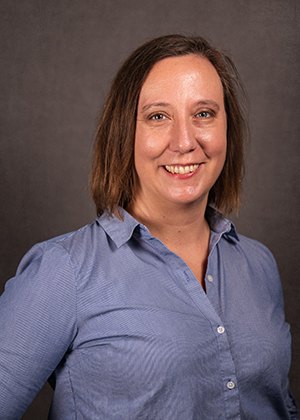About
Katherine Weisensee’s research program focuses on innovative methods applied to health research along two distinct avenues. The first is research currently funded by the National Institute of Dental and Craniofacial Research (NIDCR) of the National Institutes of Health, “Craniofacial Dysmorphology Associated with Phelan-McDermid Syndrome using Three-Dimensional Morphometrics” Small Research Grants for Establishing Basic Science-Clinical Collaborations to Understand Structural Birth Defects.” This research is in collaboration with Curtis Rogers, M.D., at the Greenwood Genetics Center. The project uses a 3d photogrammetric methods for analyzing craniofacial features to determine the dysmorphologies associated with Phelan-McDermid (PMS) syndrome and to examine changing in growth and development patterns. The craniofacial 3d modeling of dysmorphologies in rare genetic disease is in collaboration with Curtis Rogers, M.D., at the Greenwood Genetics Center. Dr. Rogers is one of the leading experts on PMS and he has been part of the community of scholars and family advocates since the syndrome was first identified.
A second avenue to research is to improve methods used by forensic pathologists and forensic anthropologists for estimating the time of death. This research is funded by the National Institute of Justice Research and Development in Forensic Science for Criminal Justice Purposes, “GIS Application for Building a Nationally Representative Forensic Taphonomy Database.” A current collaborator in forensic pathology and post-mortem interval estimate research is Michael Ward, M.D., Chief Medical Examiner for Greenville County along with other forensic practitioners around the state and across the country.
Visit Dr. Weisensee's College Profile.
How their research is transforming health care
Three-dimensional morphometric methods of examining craniofacial dysmorphology in rare genetic diseases provide an innovative way of advancing diagnosis and treatment of disease like Phelan-McDermid Syndrome (PMS) in the following ways: (1) Precisely characterize mean shape and variance in the craniofacial dysmorphologies associated with PMS; (2) quantify the effects of sex and ethnicity associated with the dysmorphologies observed in PMS; (3) define the impact on growth associated with PMS in the craniofacial complex and within craniofacial regions; and (4) determine the association of facial phenotypes with other clinical phenotypic features associated with PMS. Three-dimensional methods make possible the quick capture of data with only takes milliseconds to capture highly accurate 3d models of the craniofacial features.
Innovative methods are also at the center of research to improve methods for estimating the time of death of individuals. Understanding the context of a person’s death assists in determining their identity for accurate reporting on death information and assists the health and wellness of family members who seek an understanding of the events around the unexpected death of a loved one. This also has obvious significance from a medicolegal perspective. This research uses collaborative data collection methods to build a nationally representative database of deaths while using spatial models of environmental data to improve current methods for determining the postmortem interval.
News and media related to their research
- App created by Clemson researcher uses photos of dead bodies, roadkill to help forensic teams determine time of death - Clemson News
- Researchers using 3D facial scans to aid diagnosis of children with rare genetic syndrome - Clemson News
Health Research Expertise Keywords
Faculty Scholar, Geometric morphometrics, postmortem interval, craniofacial morphology, forensic pathology, Phelan-McDermid Syndrome

